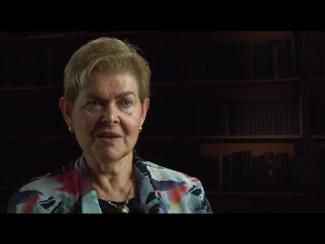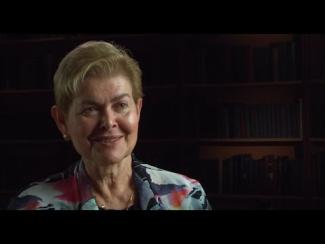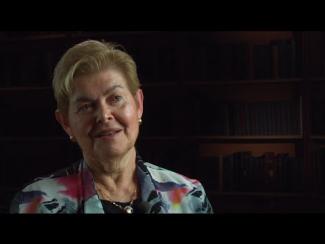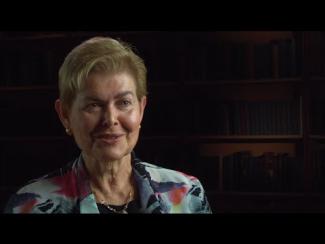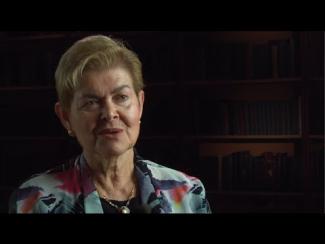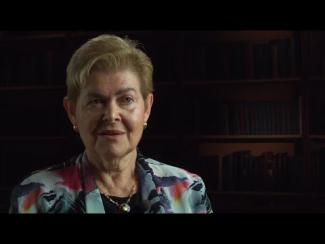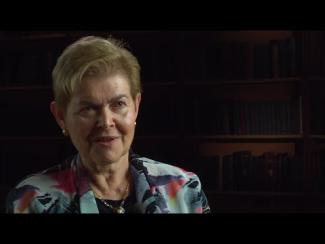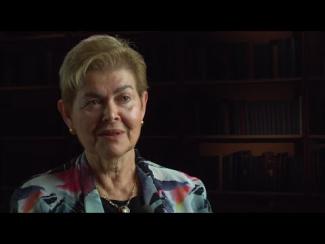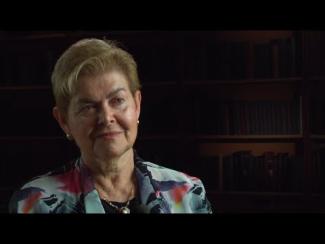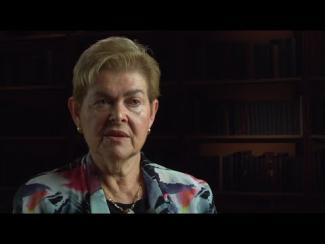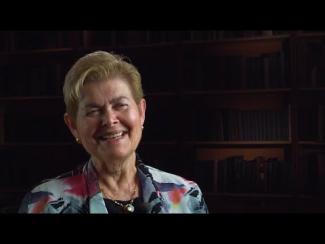The Yiddish Book Center's
Wexler Oral History Project
A growing collection of in-depth interviews with people of all ages and backgrounds, whose stories about the legacy and changing nature of Yiddish language and culture offer a rich and complex chronicle of Jewish identity.
Annette Berkovits's Oral History
Annette Berkovits, former Senior Vice President of the Wildlife Conservation Society, was interviewed by Ze'ev Duckworth on June 28, 2015. Her father was a Bundist in Poland who was falsely accused of being a communist and subsequently imprisoned. Her mother rejected her family's Orthodox practices and eventually became an entrepreneur, exploring movements such as anarchism along the way. Each of Annette's parents escaped from Poland as World War II was breaking out in 1939. She tells the harrowing story of her father's escape and arduous trek to Kurdistan where her parents met. After the war they returned to Lodz hoping to reunite with their families, none of whom had survived. Annette describes growing up in a very Jewish home in terms of values, culture and political viewpoint, although her parents were atheists. Her mother owned a successful business which was suspect in a Communist environment. Annette describes the prevailing anti-Semitic attitudes of the Polish people after the war and relevant experiences of her family. When Annette was thirteen, the family moved to Israel, joining relatives who had emigrated before the war. Annette's father was disappointed to find that Yiddish was strongly discouraged in Israel and that ageist attitudes prevailed in the young country. The family then moved to America; Annette describes her struggles adjusting to yet another country and her parents' difficulties trying to make a living. She loved participating in the "life-affirming" work of the Wildlife Conservation Society at the Bronx Zoo. She discusses her post-retirement career as a writer and her book about her father, informed by tapes recorded by him found after his death. She ends the interview by considering the challenges associated with transmitting Jewish identity and history to her children and grandchildren, and advises Jewish children to ask their parents and grandparents about their lives so that their history will not be lost.
This interview was conducted in English.

